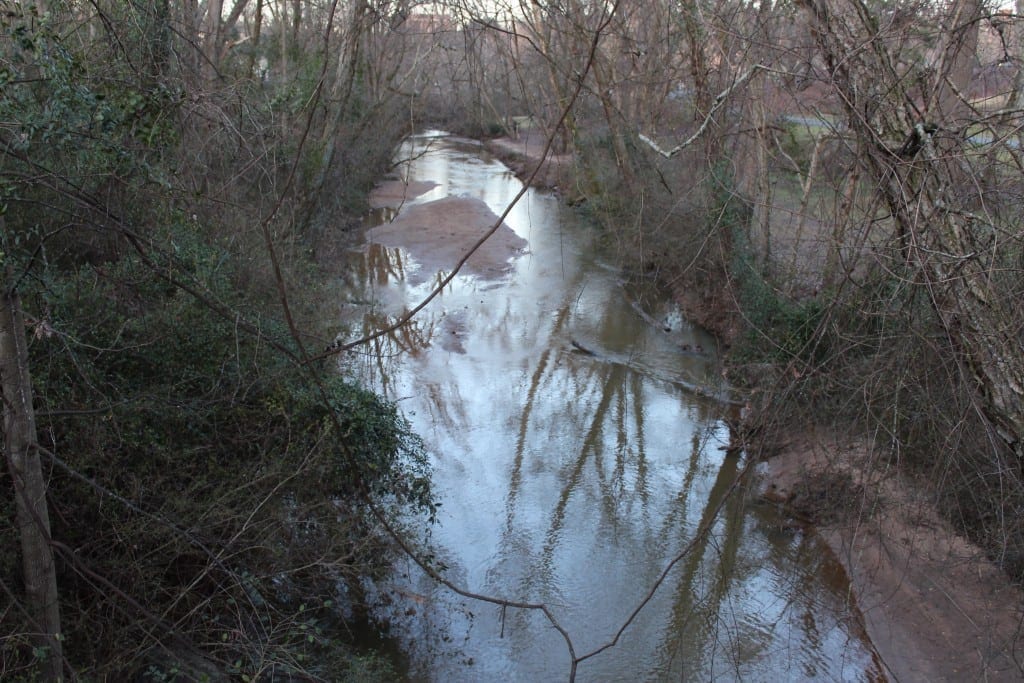
Advocates say sewer lines proposed by city officials are not the answer
Athens’ aging sewage infrastructure, up to 100 years old in some parts of the city, is threatening local streams, rivers and drinking water.
“The bulk of it is still very antiquated and, really, they’re not putting any effort into fixing it and modernizing it,” said Bruno Giri, president of the Upper Oconee Watershed Network.
However, Athens-Clarke County officials state that they are in the process of evaluating older sewer lines and prioritizing which ones are most in need of an upgrade.
“It’s going to take some time to get them all, said Adam Minchey of the Athens-Clarke County public utilities department. “We’re trying to go after the worst offenders right now.”
This effort is part of a larger 20-year proposal, dubbed the Service Delivery Plan, which received approval by the ACC mayor and commission in November 2015.
Not only do the outdated pipes affect drinking water and outdoor recreation, they also have environmental consequences. When researchers analyzed samples from nearly 14,000 miles of streams throughout Georgia, 36 percent had poor water quality and one third were tainted with the bacterium E. coli, according to a 2012 Environmental Protection Agency report,
E. coli is a type of coliform bacteria that thrives in human and animal digestive tracts and is excreted in feces. When scientists detect E. coli in a water sample, they use this as an indicator to test for other disease-causing organisms such a Giardia or Norovirus.
How do these bacteria get into drinking water? Leaking sewer lines, discharge from sewer treatment plants, animal waste, poorly maintained septic tanks and agricultural runoff are common sources. Aging pipes and pumps, both public and private, increase the likelihood that bacteria will contaminate water sources.
“You have to continually invest in this infrastructure,” said Laurie Fowler, policy director of the River Basin Center and a UGA law professor. “Once you put it in place, it’s not a one-time deal.”
She said that many homeowners do not understand their home’s maintenance needs when it comes to sewage disposal. This is true whether they rely on septic tanks or are connected to a municipal system.
“[Septic tank owners] don’t realize that you’re supposed to pump out your septic tank every seven years,” said Fowler. “They don’t put money aside so that they have the money to replace the tank or drain field.”
Households served by the municipal sewage system don’t have septic tanks to worry about, but they do need to attend to “stubs,” the pipe that connects the house to the sewer line near the curb. Often times, these are old terracotta pipes, fitted together at joints, and can crack with age or be ruptured by tree roots. This can leak raw sewage into a watershed, and replacing these old pipes is part of being a homeowner.
Twenty-five percent of Athens-Clarke County residents are not served by the ACC wastewater treatment system. In the neighborhoods where all households have septic tanks and a river or stream is nearby, Athens-Clarke County officials have proposed that residents pay for new connections to the county sewage sanitation system. The tanks would no longer be used.
Local officials propose installing new connections in the Sandy Creek and Shoal Creek basins where there are more than 2,300 septic tanks that, on average, have been in place for 23.5 years. Individual homeowner decide whether to connect or not; doing so isn’t mandatory.
The Upper Oconee Watershed Network id a vocal opponent of the proposal, which they say is too costly to homeowners and can disrupt delicate ecosystems,.
“They’re putting these sewage lines along vulnerable water areas and that causes an increased possibility of contamination,” said Giri. “This solution only works if people pay the money to connect, which they probably won’t because they’re not affluent folks. There are a lot of mobile home communities [in the neighborhoods near Sandy and Shoal Creek ]so you’re talking about people who can barely afford the cost of living as it is.”
Residents who cannot afford to connect will keep their current septic tanks and nearby streams will continue to be at risk for pollution with E. coli and other disease-causing bacteria.
When an overflowing septic tank, a broken pipe, or even heavy rains causes a bacterial contamination incident, the water not be safe for children or pets to enjoy – nor will fish be safe to eat.
But neighborhood residents might not be warned right away.
A few years, local officials mishandled a spill into Trail Creek from the chemical factory that makes Ty-D-Bol. No signs were posted for several days after the spill occurred on the east side of town.
“The creek is bright blue and stinks to high heaven of bathroom deodorizer; there’s clearly something in that creek that shouldn’t be there,” said environmental scientist Marsha Black, an associate professor in the UGA School of Public Health. “And nobody posted any signs that said: Don’t get in the water. Don’t let your pets drink. Don’t let your children wade.”
According to Giri, the Georgia Environmental Protection Division, the organization that was largely responsible for the lack of response in this disaster, is severely understaffed. The new gravity-fed sewer lines could create additional challenges for the city when responding to spills and accidentals.
Giri said, “There should have been some sort of soul searching and some sort of tightening the system up a little bit, and that hasn’t happened. I’m afraid to say it could happen again anytime.”
By Erin Geoffroy







